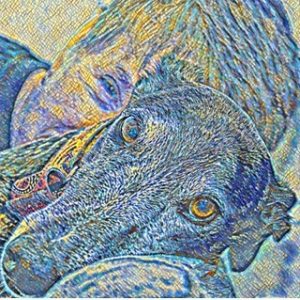What inspired Jax’s novel, “I chose to focus on the early years of this fascinating individual known as the Public Universal Friend, though more is known about their later years, through historical records of legal transactions and diaries of acolytes. Drawn as I am to the human experience; I was motivated to think deeply about what it must have been like for this individual to reconceptualize their life and carry through with their plans to recreate themselves. Many of us, including myself, have been in a position to reinvent themselves in some way, whether by choice or necessity. I also saw many parallels between the turmoil of today, and the immense churn that must have been experienced by those living through the American Revolution. We have the benefit of hindsight; they would not have known how it was all going to turn out.”
Jax also points out that, “While today we might well be tempted to think of someone who awakes to proclaim themselves a spirit – nonbinary or otherwise – as suffering from delusion, the late eighteenth century was governed by far different ideologies. Unlike today, where the experience of religion or spirituality can vary widely, the historical record indicates that among the colonial Christians, the experience of religion was far more common and deeply ingrained. Life was more precarious for most people, and faith provided a common source of comfort. Of course, not everyone was pleased with the Public Universal Friend and their claim, and yet they were unbowed in the face of their opposition.”
Jax’s sources include, “Paul Moyer’s The Public Universal Friend: Jemima Wilkinson and Religious Enthusiasm in Revolutionary America, and Kit Heyam’s Before We Were Trans: A New History of Gender. All of the biblical quotes appearing in this work are sourced from the King James Version. Many of the Friend’s homilies were adapted from Selected Sermons of Johnathan Edwards, H. Norman Gardiner (Ed).”
For further information about the author see <jaxwilloughby.com>

Ellen and Dog